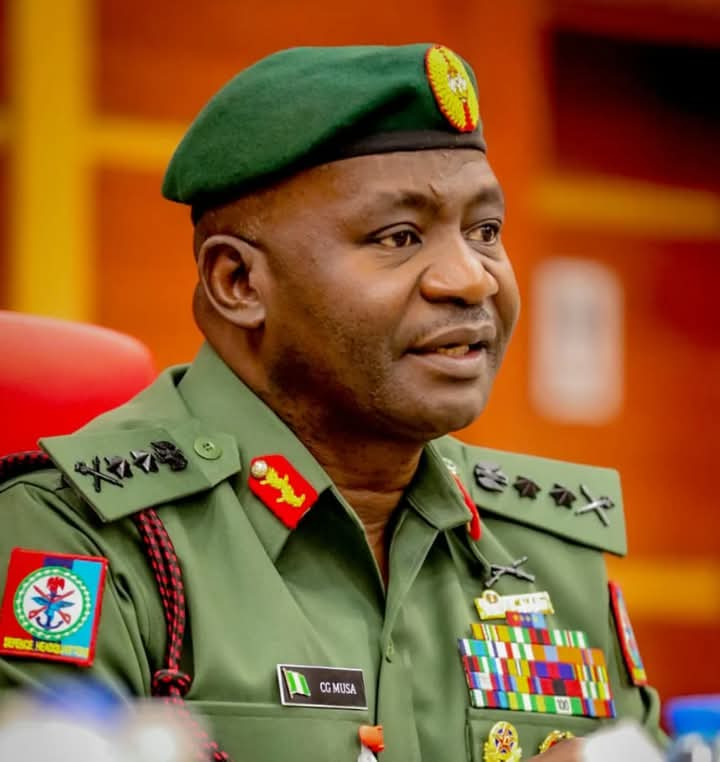The Chief of Defence Staff (CDS), General Christopher Musa, has attributed the recent upsurge in killings and insecurity across Nigeria to political manoeuvrings ahead of the 2027 general elections.
Speaking during an interview on Channels Television’s Politics Today on Thursday, Gen. Musa warned that some political actors may be deliberately stoking unrest to discredit the government’s security efforts.
“In 2024, we recorded the lowest number of deaths. How come this year, suddenly, everything has spiked? Politics is coming, the election is coming,” Musa noted. “Some individuals don’t want peace because when there is peace, the government is seen to be doing well. When there is no peace, the government is seen to be failing.”
He alleged that certain politicians are enabling criminal groups, including terrorists and bandits, to foster instability and undermine governance. “What do you gain from it?” he asked. “How do you kill the people you want to govern?”
READ ALSO: Benue: ‘No farmer-herder clash, it’s animals invading farms’ -CDS Musa
Terrorism, legal challenges, foreign funding
Gen. Musa also cited local and international funding as key enablers of terrorism, revealing that the government is actively tracking terror financiers with the help of the Nigerian Financial Intelligence Unit (NFIU), the Department of State Services (DSS), and other intelligence agencies.
He acknowledged the slow pace of progress due to legal bottlenecks. “The process of naming terrorism financiers is on,” he said, adding that arrests and prosecutions have begun. “Those behind the Owo bombing are already facing trial.”
Musa criticised the current legal system, calling for sweeping reforms to fast-track terrorism cases and strengthen penalties. “Our legal system is frustrating. We need to unbundle it, make it faster and more stringent. Once people know they can get away with anything, impunity sets in.”
He cited incidents in the South-South region where seized vessels often return after paying minimal fines, leading the military to resort to destroying such assets despite environmental concerns. “That has brought more peace than allowing the legal bottlenecks to continue,” he remarked.
Sahel instability, open borders
Highlighting regional security concerns, the CDS warned that Nigeria’s porous 4,000km border and the instability in the Sahel—particularly Libya, Mali, Niger, and Burkina Faso—have created open markets for arms smuggling.
“Since Libya fell, the Sahel has been open. You can buy any weapon in those markets,” Musa said, stressing that Nigeria’s size and resources make it a key target.
He cautioned against Nigerians’ over-hospitality to foreigners, saying many infiltrators pose as kin but later emerge as threats. “We have to think of security. Boko Haram started like that—welcoming strangers who later became monsters,” he warned.
The CDS added that Nigeria is cooperating with its Sahelian neighbours through the Alliance of Sahel States to counter terrorism and border threats.
Technology gaps, cost of security
General Musa lamented the high cost and limited availability of modern military technology, noting that the war in Ukraine has made precision weapons and surveillance equipment even more expensive and scarce.
“A medium-range precision weapon costs about $100,000. How many can we buy in Naira?” he said. “That’s why we have to use them strategically.” He cited a recent successful drone strike that eliminated over 100 terrorists as an example of efficient resource use.
He stressed the need for real-time satellite surveillance to improve battlefield intelligence, admitting that Nigeria lacks this capacity due to the exorbitant costs. “These terrorists know we don’t have certain technologies, and they capitalise on it.”
Musa praised the federal government for approving the Defence Industrial Bill, which enables local production of military equipment. “If we produce, we can get more value. With global conflicts ongoing, even with money, you may not get the equipment,” he added.
The Defence Chief concluded by urging Nigerians to support the Armed Forces by refusing to harbour or aid terrorists. “These terrorists thrive because some people still support them—with fuel, money, shelter. If we don’t give them space, they won’t thrive,” he stated.
He emphasised that defeating terrorism requires a national effort: “Everybody must be on board.”



